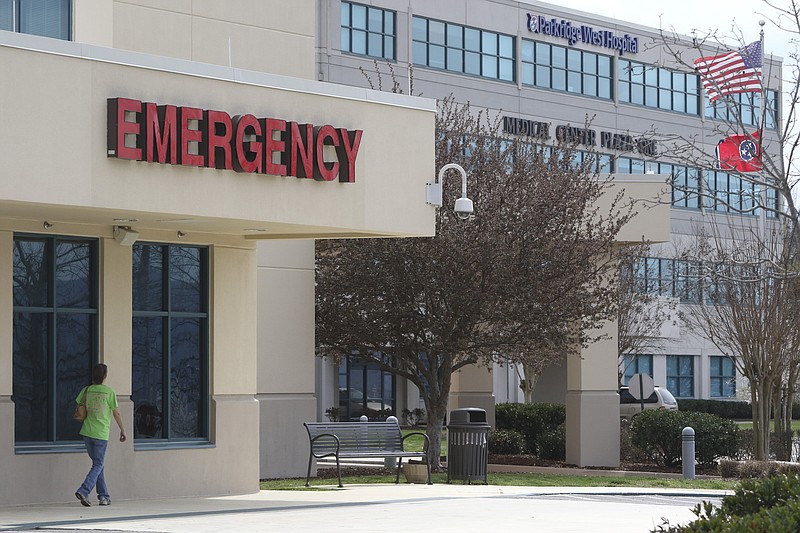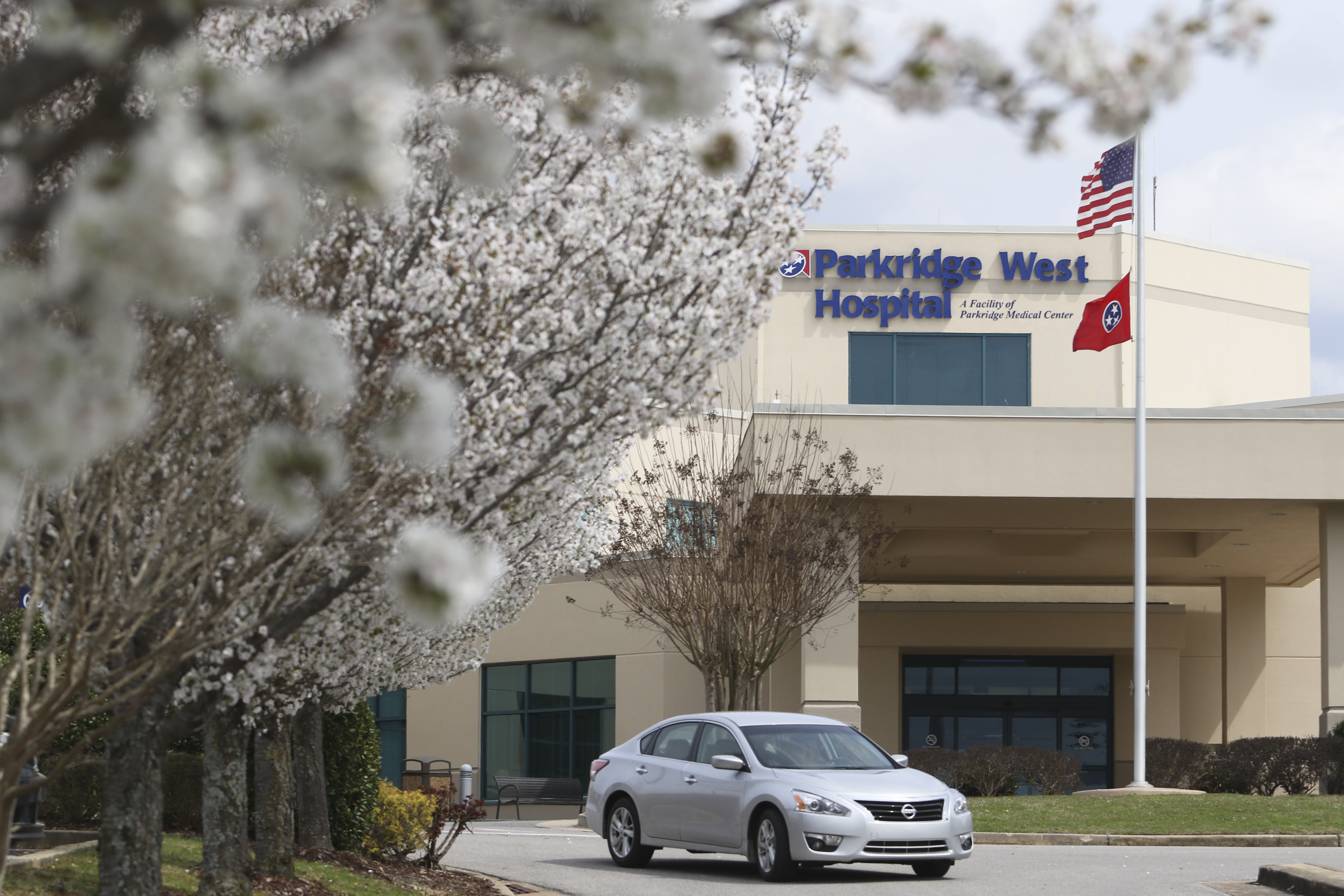Just a year ago, Parkridge Health System leaders had high hopes for their new acquisition, Grandview Medical Center in Jasper, Tenn.
Under its previous owner, the rural hospital had seen patient numbers dwindle each year. But Parkridge, part of the for-profit corporation HCA Healthcare, planned to give the struggling hospital -- renamed Parkridge West -- an infusion. The system poured $14 million into much-needed upgrades, including everything from a new roof to emergency room makeovers to new physician recruits.
But the changes failed to reverse a nosedive in inpatient business. So on April 6, the hospital will shut down all inpatient services, officials announced Thursday. Approximately 20 employees will lose their jobs.
Parkridge West is only the latest in a growing number of rural hospitals that have been forced to downsize or close in a drastically changing health care landscape.
"That's the trend that's happening across the country," said Parkridge CEO Darrell Moore, who said that only 2 percent of the hospital's patients used inpatient services over the last year.
"Rural communities have been faced with this dilemma. Health care in general is very challenging, and it's even more challenging for small rural hospitals to keep pace."
Last week, a report by Kaiser Health News showed that 48 rural hospitals have closed since 2010 -- the majority in Southern states -- and 283 others are in trouble.
Craig Becker, president of the Tennessee Hospital Association, said the trend will only continue in the face of compounding challenges.
Rural hospitals already struggle to maintain a critical mass of patients, with declining populations and high rates of people who are uninsured. Procedures that used to require hospitalization now often are performed on an outpatient basis. Expensive equipment may be underused, and recruiting physicians -- especially those with lucrative specialties -- becomes more difficult.
On top of this, rural hospitals have been uniquely squeezed by reimbursement cuts in the Affordable Care Act. The cuts were meant to be made up by expanding Medicaid, but Tennessee lawmakers in February voted down an expansion proposal offered by Gov. Bill Haslam. Now other lawmakers are trying to revive the expansion, seeking to push a bill similar to Haslam's to the floor for a vote.
"A lot of the problems rural hospitals are now facing have a lot to do with the Affordable Care Act and the fact that Insure Tennessee [Haslam's proposal] hasn't been approved," Becker said. "You do worry that as funding contracts we'll see more and more hospitals closing."
Three other Tennessee hospitals have downsized or closed since January 2014, he said.
Moore said he doesn't assume Medicaid expansion would have bolstered Parkridge West's inpatient care, but said, "It would benefit virtually every hospital in its ability to better serve those underserved patients."
The hospital will provide 24-hour emergency room services and some outpatient specialties, including imaging and laboratory services. Mountainview Treatment Center, a 20-bed psychiatric hospital owned by Parkridge, will remain open.
Emergency patients who need hospitalization will be transferred to Chattanooga, about 30 miles away. Officials also announced that a new helipad at Parkridge downtown will open soon.
Grandview was owned by HCA until it was sold to Franklin, Tenn.-based Capella Healthcare in 2005. Parkridge bought it a year ago as the fifth hospital in the Parkridge system.
Moore said he is optimistic for the site's future. The hospital's ER volumes are "robust," and imaging and mental health care services have been strong.
When Parkridge bought Grandview, the hospital had 250 employees. Moore said most workers whose jobs are affected have been matched with vacancies in the Parkridge system. For the 20 or so people left without jobs, Moore said the hospital is holding a job fair and "trying to help with the transition as much as we can."
"We feel very committed to the Sequatchie Valley," Moore said. "There's a lot of transition out there, certain pockets that are growing. We want to support the business community and future economic growth and development."
Contact Kate Belz at kbelz@timesfreepress.com or 423-757-6673.

